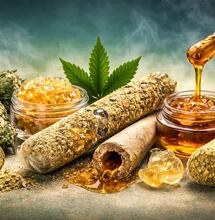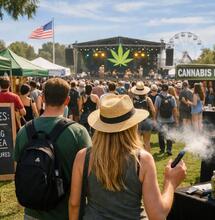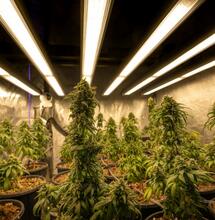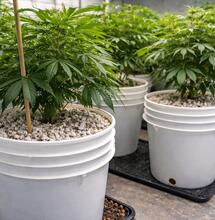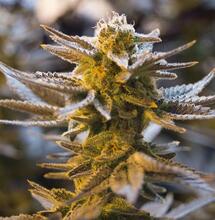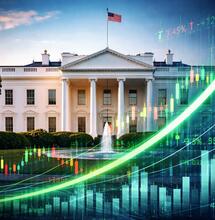The Delta-8 Doomsday Clock: New Bill Will Recriminalize 95% of the Hemp Industry
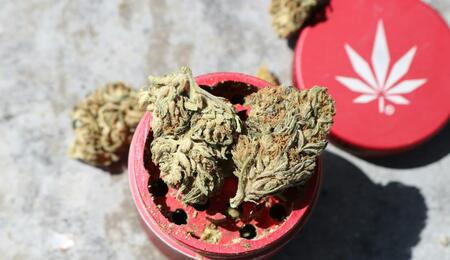
As President Donald Trump signed legislation in November 2025 to end the longest government shutdown in U.S. history, the Delta-8 doomsday clock began ticking. The legislation, part of the government appropriations bill, contains resolutions that are set to recriminalize 95% of the hemp sector, representing the most significant change to federal hemp policy since the 2018 Farm Bill.
Federal lawmakers have moved decisively to seal the so-called “hemp loophole,” which enabled intoxicating, hemp-derived cannabinoids such as Delta-8, Delta-10, and HHC, to be sold nationwide in a largely unregulated market. The “crackdown” provision was included in the Continuing Appropriations and Extensions Act of 2026 (part of the government funding package) and was signed into law by President Donald Trump on Nov. 12, 2025.
Prior to getting the President’s final approval, the bill passed the House in a mostly partisan vote of 222-209. It was largely supported by Republicans, with six Democrats also voting in favor. The Senate passed the bill by a vote of 60-40 with the support of all Republicans and eight Democrats.
Sen. Mitch McConnell was a key architect of the provision: he pushed for changing the federal hemp definition to exclude synthetic or “intoxicating” cannabinoids, calling it a fix to an “unintended consequence” of his own 2018 Farm Bill.
Impact on Hemp Products: What Are the Key Legal Changes?
The new legal changes significantly tighten the definition of what counts as legal “hemp.” While the provision is aimed primarily at Delta-8 THC—typically produced by converting hemp-derived CBD isolate—it also applies to other cannabinoids that are created through chemical synthesis or conversion.
Old rule (2018 Farm Bill):
- THC Limit: Less than 0.3% Delta-9 THC by dry weight.
- Cannabinoids Covered: Only Delta-9 THC was regulated.
- Conversion/Synthetics: Silent on chemical conversion.
New Rule (2026 Appropriations Bill Provision):
- New THC Cap: A hemp product cannot contain more than 0.4 milligrams of Total THC per container or package.
- Total THC Defined: The new limit includes Delta-9 THC, THCA, Delta-8 THC, Delta-10 THC, and any other cannabinoids with similar intoxicating effects.
- Ban on Synthetics/Conversion: Prohibits any cannabinoid that is synthesized or manufactured outside the plant.
When Does the Ban Take Effect?
- There is a one-year (365-day) grace period for the industry to comply.
- The new federal definition of hemp and the restrictions are expected to become enforceable around November 2026.
The Industry and Consumer Impact
The alteration in federal law would wipe out the very products that created the intoxicating hemp market, banning thousands of edibles, beverages, and even certain non-intoxicating, full-spectrum CBD items.
- Devastation to the Hemp Industry: The U.S. Hemp Roundtable, a leading advocacy group, estimates the law will eliminate over 95% of currently available consumable hemp products and shut down a $28 billion industry, which provides hundreds of thousands of jobs.
- Criminalization: Once the grace period expires, non-compliant products will no longer qualify as “hemp” under federal law and will be treated as Schedule I controlled substances (marijuana), leading to potential criminal liability for manufacturers, retailers, and distributors.
- Impact on CBD: Even many common, non-intoxicating full-spectrum CBD products that contain trace amounts of minor cannabinoids will likely exceed the new 0.4mg per-container limit and be rendered illegal.
The Unintended Casualties: Who Loses Out?
Supporters say the ban is aimed at “bad actors,” but in practice it’s poised to hit everyday businesses and consumers the hardest. The first to feel the blow will be America’s hemp farmers, many of whom poured millions into their operations after the 2018 Farm Bill opened the door. And then there are the millions of people—especially in states without legal cannabis—who rely on affordable, over-the-counter cannabinoids for sleep, anxiety, or pain relief. For them, this isn’t just a policy tweak; it’s a major disruption to their daily wellness routine.
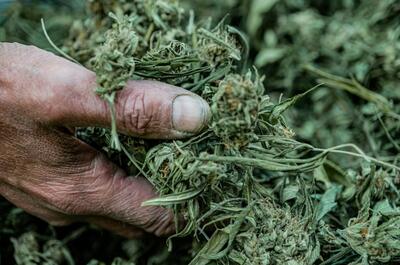
Advocacy’s Next Move: Can Anything Be Done?
Over the coming year, advocacy groups are gearing up for a full-court press—pushing Congress for a legislative “clean-up bill,” exploring legal challenges, and rallying support to replace the ban with what they call “sensible, science-based regulation” instead of outright prohibition.
“Our new mission, friends: 365 days to regulate, NOT ban”, the U.S. Hemp Roundtable organization wrote on its website. “We have [time] until November 13, 2026 to help [the] federal government understand how to regulate hemp and protect Americans, not ban hemp which is essential for the health and wellness benefits treasured by millions of Americans.”
For everyone who wants to stay involved, the U.S. Hemp Roundtable is already organizing outreach efforts, and they offer easy tools to contact your representatives during this one-year window.
The Great Divide: Licensed Weed vs. Unregulated Hemp
The federal crackdown on Delta-8 didn’t come out of nowhere—it’s the latest flashpoint in a long-running fight between the tightly regulated state-legal marijuana industry and the largely unregulated hemp-derived cannabinoids sector. With the new appropriations bill, that turf war is now front and center.
Why Licensed Operators Pushed for a Ban
Licensed cannabis businesses have spent years operating under heavy taxes, strict testing rules, and banking restrictions. Meanwhile, the 2018 Farm Bill opened the door for hemp processors to convert CBD into intoxicating cannabinoids like Delta-8 and HHC, creating a booming, lightly regulated market that dispensaries saw as an existential threat.
Industry groups like the U.S. Cannabis Roundtable (previously U.S. Cannabis Council) argued that anything intoxicating should fall under the same rules as marijuana—pointing to contamination issues, inconsistent dosing, and easy access for minors.
And They Got What They Wanted
The new provision, which redefines hemp and caps “Total THC” at just 0.4 mg per product, marks a clear win for the licensed cannabis lobby. By effectively eliminating intoxicating hemp products, the law pushes consumers toward state-regulated markets where testing, taxes, and age controls already exist.
The outcome is a clear policy alignment: under federal law, intoxicating hemp products are now considered legally equivalent to cannabis, meaning operators must now comply with state-level licensing, labeling, and age restrictions—or face recriminalization. The grace period of one year is the final countdown for this shadow industry to either disappear or find a highly restricted path to the legitimate, regulated market.
More from Soft Secrets:




